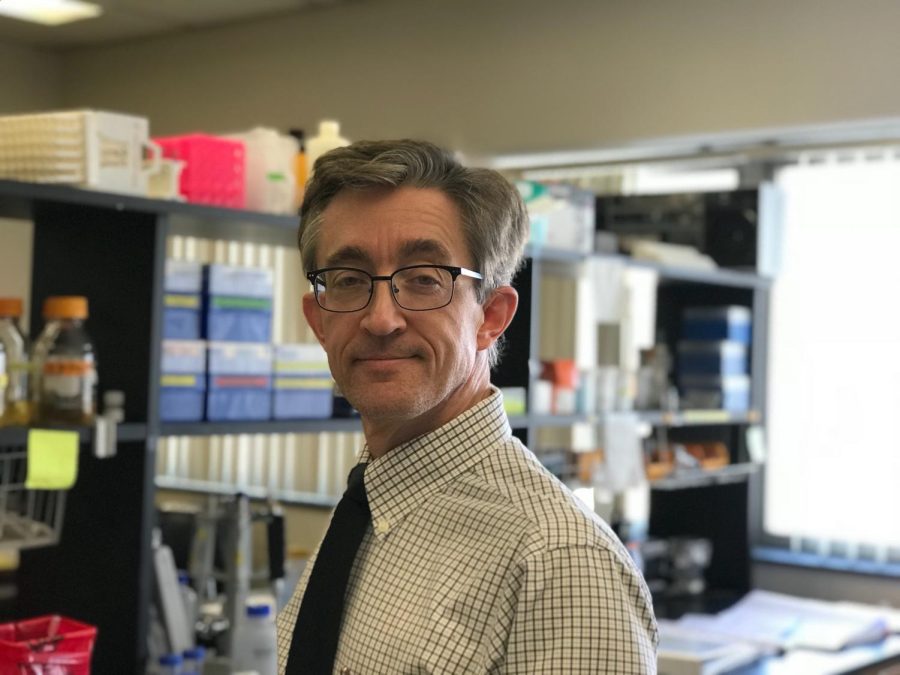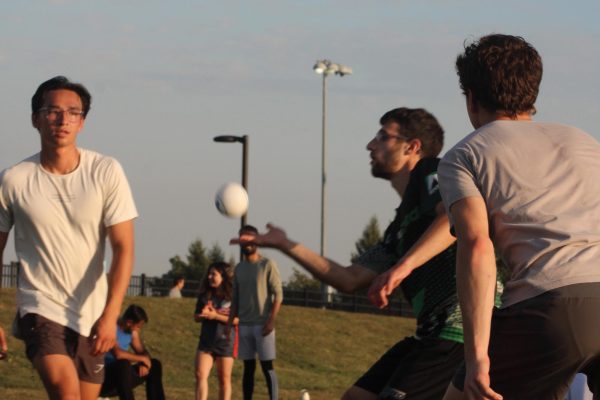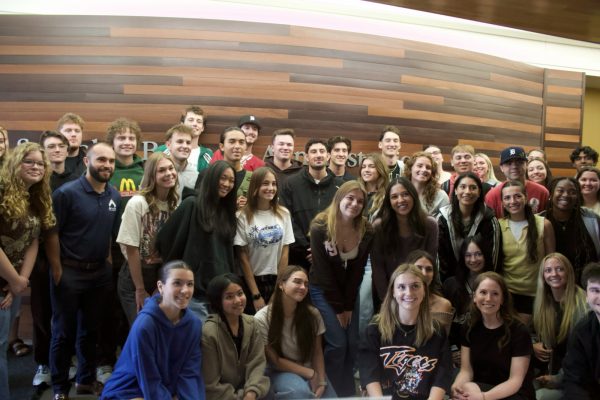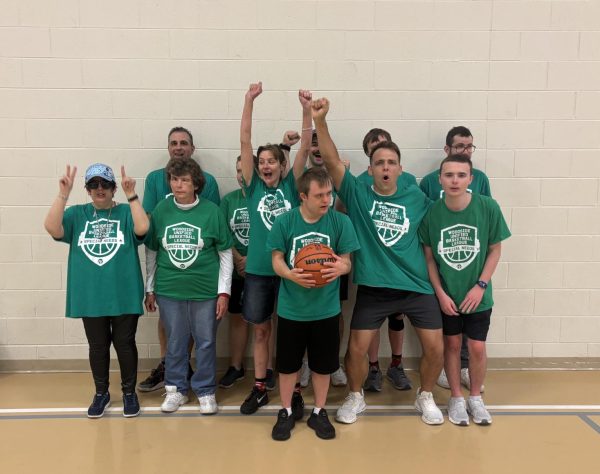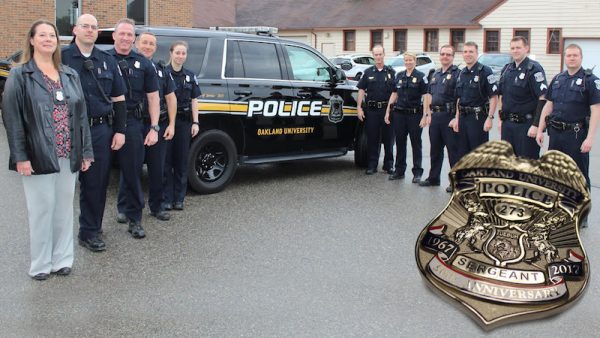Dr. Kenneth Mitton’s journey to becoming a U.S. citizen
Dr. Kenneth Mitton, assistant professor of biomedical sciences at Oakland University, was preparing for the United States citizenship test before he knew he would ever be taking it.
Growing up in Canada, Mitton began learning about the U.S. in school from a young age. He had to memorize the capitals of every state — something that he believes is shocking, as unlike Canada, people born and raised in the U.S. are not as educated in world history.
“When you have kids and you see what the curriculum is — you realize that not everybody gets a world history [lesson],” Mitton said. “History classes in the U.S. for your kids start with George Washington typically, and then people who are interested in learning more will learn more.”
Mitton realized Canada and the U.S. had a close relationship when watching the television program “Sesame Street” — which was customized for Canadian viewers.
“‘Sesame Street’ got customized for Canada because a lot of people were worried that television [that] was also American [would pronounce letters of the Canadian alphabet wrong],” he said. “Canadian kids were starting to say ‘zee’ instead of ‘zed.’ So if something’s sort of said differently, they re-record the same sequence and they’ll say the other word for the other country.”
Mitton lived in Canada until he completed his PhD in Jan. 1994. He then relocated to the U.S. for his postdoctoral research and thus began his long-lasting relationship with visas, green cards and naturalization tests.
Mitton worked on visas in the U.S. for a long time until a border patrol agent suggested he get a green card to make life easier.
“He said, ‘why don’t you just get a green card?’ I’ve always just had these visas and stuff,” Mitton said. “So I did that and then I had a green card for a couple of cycles.”
After having a green card for a while, Mitton began to look at the possibility of becoming a U.S. citizen. Thinking of the family he created with his wife — who grew up in Sault Ste. Marie, Ontario and is a dual citizen from birth — he realized that he likely wants to stay in the U.S. after he retires.
Another motivating factor was the presidency of Donald Trump — who had an anti-immigration platform.
“[I heard from a friend] that as Trump was cruising along, especially into his last year, that there were things going around about maybe making it hard to renew green cards,” he said. “It never got into policy, but my friend said, ‘why don’t you get yourself a citizenship while you can?’”
Following the election of Joe Biden, Mitton officially applied for naturalization. He thought the process would take so long that he would be unable to vote in the upcoming election on Nov. 8 — but on July 20, Mitton was sworn in as a U.S. citizen.
“In the morning I became an American, [my wife and I] had a quick snack from Tim Hortons, and at about 1:30 p.m. — I voted in the primaries,” Mitton said.
Mitton is happy to officially be a U.S. citizen so he can participate in acts of democracy like voting.
“It’s been tough not being able to vote,” Mitton said. “[As we were] going into 2022 I thought — ‘I got to make sure I’m an American so that I can vote here, for the betterment of my kids, my grandkids and their grandkids.’”



